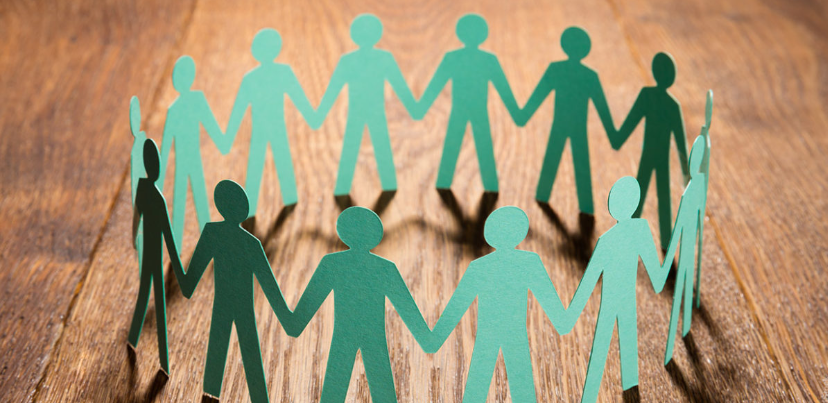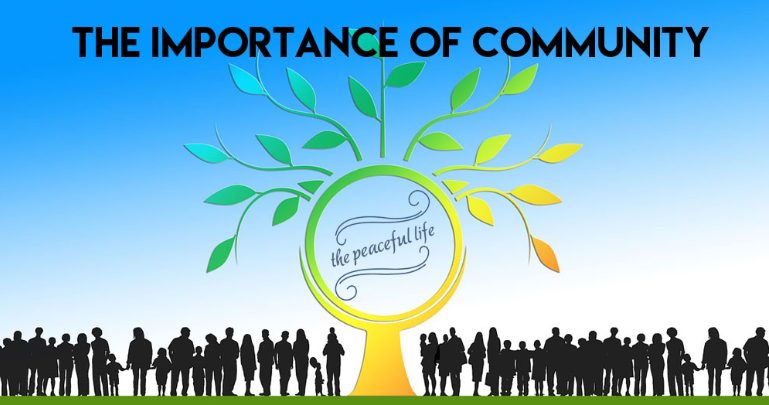What is Community? its Definition, Types and Importance
What do you mean by Community?
A community is a social unit (a group of living beings) with common characteristics such as place, norms, religion, values, customs or identity. Communities can be located in a specific geographic area (such as a country, city, or district) or can share a virtual space through communication platforms. Strong ties that go beyond direct genealogical ties define a sense of community that is important to their identity, experience, and roles in social settings such as family, home, work, government, society, or humanity in general.

While communities are usually small compared to individual social relationships, “community” can also refer to relationships with larger groups, such as national communities, international communities, and virtual communities.
An example
Communities come together to share unique information or solve common problems. An example is a local community organization that can come together to promote, fund, maintain and enjoy local open spaces. In this context, the interests and experiences of society may be different. Some people join in to enjoy the outdoors and contribute from time to time, while others are very interested in plant health or ways to get more involved in these areas.
All successful communities have gatherings where community members gather for discussion, entertainment, or shared activities. A local example is the Andover Village Improvement Society. Often communities are so large that not everyone knows each other but small enough that everyone feels personally responsible.
Also, Read
-
What is Acid Rain? Definations, Causes and Effects of Acid Rain
-
What is Ground-Level Ozone? And its Effects
-
What is Air Quality? Air Quality Indicator and Air Quality Index
Importance of Community
- It should take into account people’s positive feelings about “community” (like the sense of belonging), but not that “community” is necessarily good (after all, this is a good example of community.” The mafia does. Their type, Balanced reading activities are a world of good. You would be hard pressed to argue that it has power).
- It must be able to express a sense of identity and belong to a “community”. We should see it as pride or anger when the community we belong to is praised or attacked. And it should explain the in-group/out-group nature of identity – why some people are part of a particular community and others are not.

- It should explain why ‘communities’ have normative (moral) power – how communities shape our understanding of what is ‘good’ and ‘bad’. For example, our community shapes our understanding of what it means to be a good neighbor: a shared understanding of how the people around us should be treated.
- It should be explained why ‘community’ differs from other social groups such as ‘society’, ‘family’ or simply groups of people.
- It should be noted that people can be members of different communities at the same time
Communities are organized in different ways- Community
Each community is organized to meet the needs of its members, but they function differently based on culture, religion, and other experiences, although African American churches in health education and social justice are recognized for their important role in promotion. They are basically the same organization and they don’t work
Global migration has consolidated communities based on people’s needs and desires for safety, belonging, security, and self-care, allowing groups to build new migrant communities according to law enforcement needs. Another group could form a community about the need for spiritual guidance. The former is not as socially understood as we think, but the latter could be.
The meaning of society usually requires more thought and debate than we do. Moving forward, researchers, practitioners, and policymakers must recognize this complexity, including its important implications for community health and well-being, as they seek to understand and create community change.
Why does the Community matter? – Community
In essence, this is just a request for a more specific language. I am not saying that “community” is the only (or most important) social group, but rather that the strong sense of community and belonging that people feel is a particular social group that strictly membership in a particular social group describes. The world is viewed through lenses.
Sometimes, it emphasizes “community” in our political (policy/governance) discourse. Most of the time you are out of touch with the community, In this case, people need to stop using the word “neighbor” as a warm and fuzzy feeling and a good word for the poor. When I say “man,” I mean “people.” If you say “community,” please explain which community and why this identity conversation is important to you.
Narrative Change is (Part of) Social Change- Community
This information helps us understand that most changes in society are narrative changes. It helps us to ask questions like What story shapes our understanding of how we should live in this situation? Who and what make up these stories? Where and who says? Technically, politics should be involved in the narrative construction of social differences.
Of course, these are not the only important questions. But if we don’t pay attention to it, social change becomes more difficult.
Challenging Our Own Narrative- Community
If the social change involves changing the story of a community, it is up to the members of that community to contest and reconstruct their own story. We know it’s dangerous (and usually dangerous) to change someone else’s story. It gives each community the responsibility to think (critically) about its own story and the process of storytelling. What does our story say about justice/caring/kindness (object of any value reflection)? Who is involved in this process? Who can find and tell their story? Whose vote counts?

Freedom, Diversity, and Tolerance- Community
Some issues can be viewed through a social lens. What about those who don’t share our stories? What can we learn from the stories of others? What does it take to write a shared story?
Ultimately, society helps us understand the meaning of freedom. Being free to write your own story is an individual and collective process. It means you’re free to find the community that’s best for you, and that means you’re part of creating stories that set others free.
Conclusion
I hope this helps. Inevitably, the limited ways I’ve found to bring this down to readable length mean jumping to a series of key ideas and questions very quickly. However, I hope some of the basic ideas are discussed in a useful way. You are free to ask your questions related to this topic.